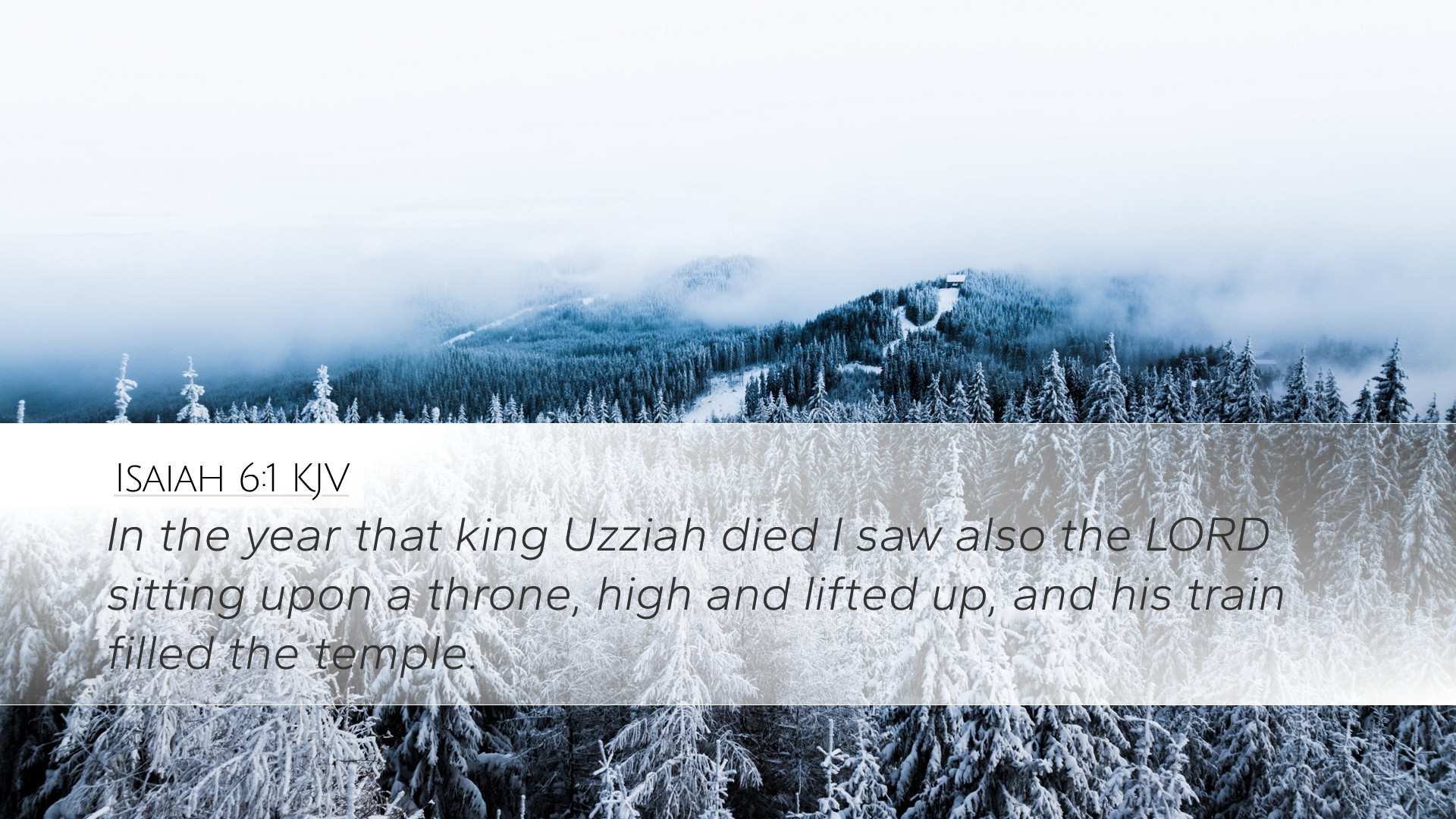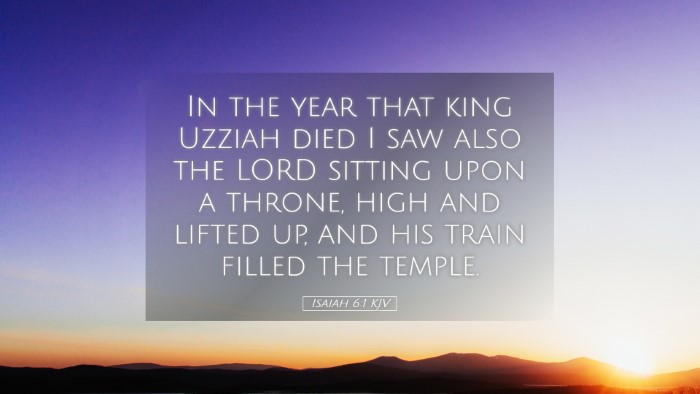Isaiah 6:1 - A Commentary
Isaiah 6:1 states: "In the year that King Uzziah died I saw also the Lord sitting upon a throne, high and lifted up, and his train filled the temple."
Contextual Background
This pivotal moment in Isaiah's life is recorded during a time of political upheaval with the death of King Uzziah, who reigned for 52 years. Uzziah was known for his prosperity and military successes, yet his latter years saw him struck with leprosy due to pride (2 Chronicles 26). The death of such a significant king brought uncertainty to the nation of Judah.
The Vision of the Lord
-
The Sovereignty of God:
Isaiah's vision begins with a profound declaration of God’s sovereignty. The phrase "sitting upon a throne" signifies God’s unchallenged rule over all creation, emphasizing that despite political changes, God remains in control.
-
High and Lifted Up:
This description reinforces the transcendence of God. He is exalted above all earthly powers, reminding the readers that no earthly king can compare to God's majesty and authority.
-
The Train Filling the Temple:
The imagery of God's robe filling the temple symbolizes His glory and majesty. As noted by Matthew Henry, the grandeur of God's presence is overwhelming, and this serves as a foreshadowing of the future temple where God's glory will dwell completely.
Theological Implications
Isaiah 6:1 elucidates several critical theological points that are important for pastors, students, and scholars.
-
The Holiness of God:
In the subsequent verses, Isaiah’s realization of God’s holiness is critical. The recognition of God’s purity leads Isaiah to grasp the gravity of his sinfulness, which is a theme prevalent in the call of the prophets (Isaiah 6:5).
-
God’s Immanence:
While God is exalted and transcendent, He also desires a relationship with humanity. Isaiah's vision in the temple signifies that God is not aloof but actively desires to reveal Himself to His people.
-
Call to Ministry:
Isaiah's experience exemplifies a transformative encounter with God that leads to his prophetic calling (Isaiah 6:8). This interaction serves as a model for how divine encounters compel individuals into service.
Practical Applications
Isaiah 6:1 provides profound implications and applications for believers today:
-
Understanding Authority:
In a world where leadership can be tumultuous, understanding the sovereignty of God reassures believers that their ultimate hope rests in divine governance rather than human institutions.
-
Acknowledgment of Sin:
Just as Isaiah recognized his own sinfulness, believers are reminded to practice humility and self-reflection, leading to repentance and spiritual growth.
-
Embracing Ministry:
Isaiah’s response to God’s call inspires believers to seek and embrace their roles in God's kingdom, understanding that each call carries with it a sense of purpose and responsibility.
Conclusion
Isaiah 6:1 serves as more than a historical account; it represents a theological foundation that instills awe for God’s holiness, provides reassurance of His sovereignty, and encourages believers towards vocational ministry. As Matthew Henry, Adam Clarke, and Albert Barnes express, this vision is a call to recognize the infinite greatness of God amidst the uncertainties of life.


